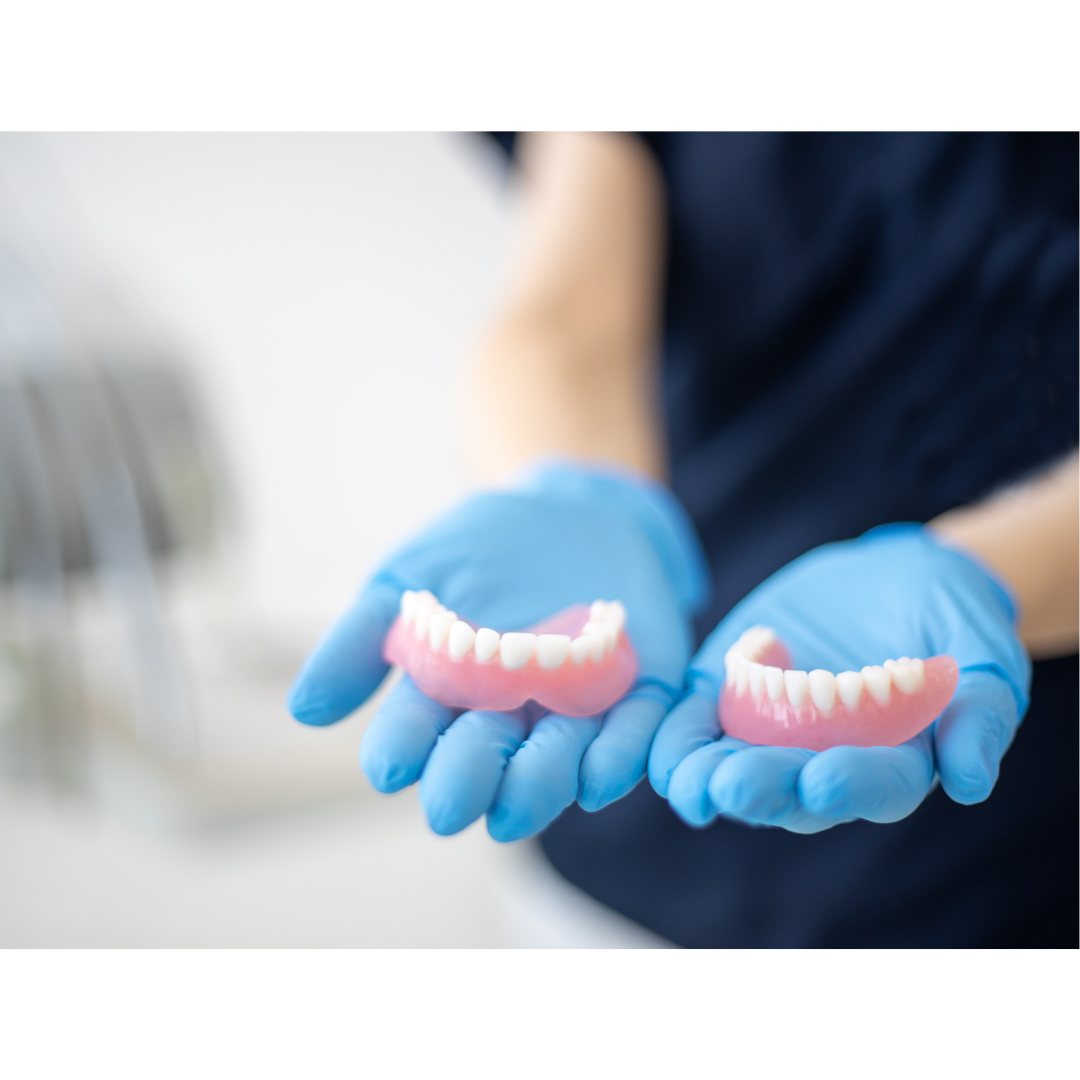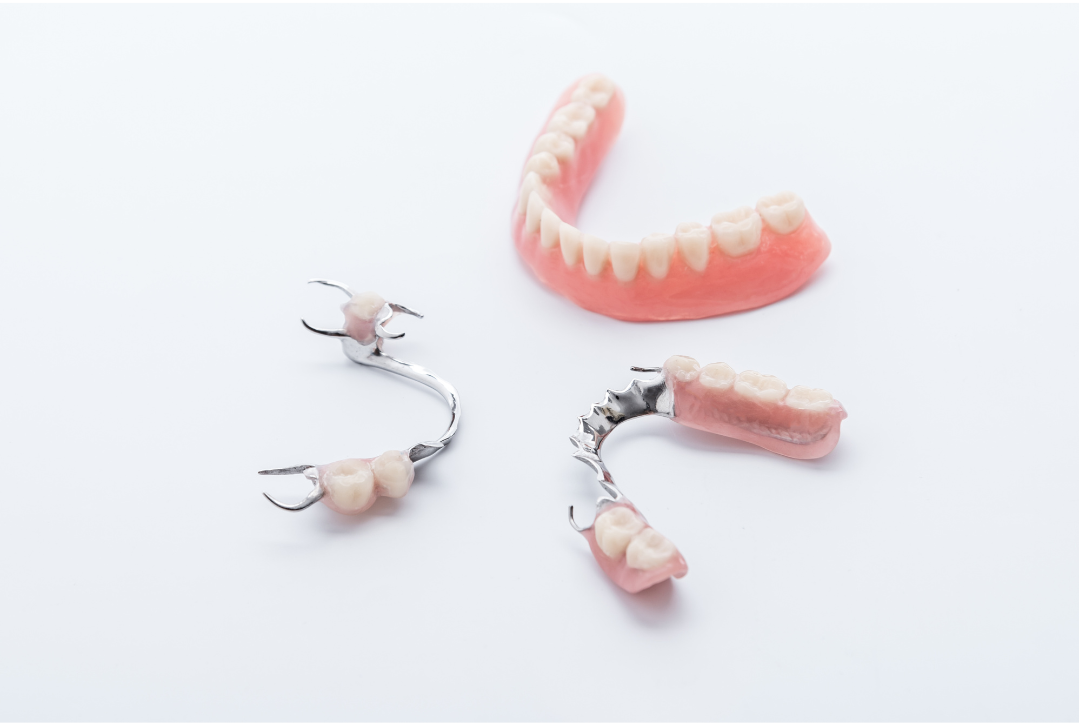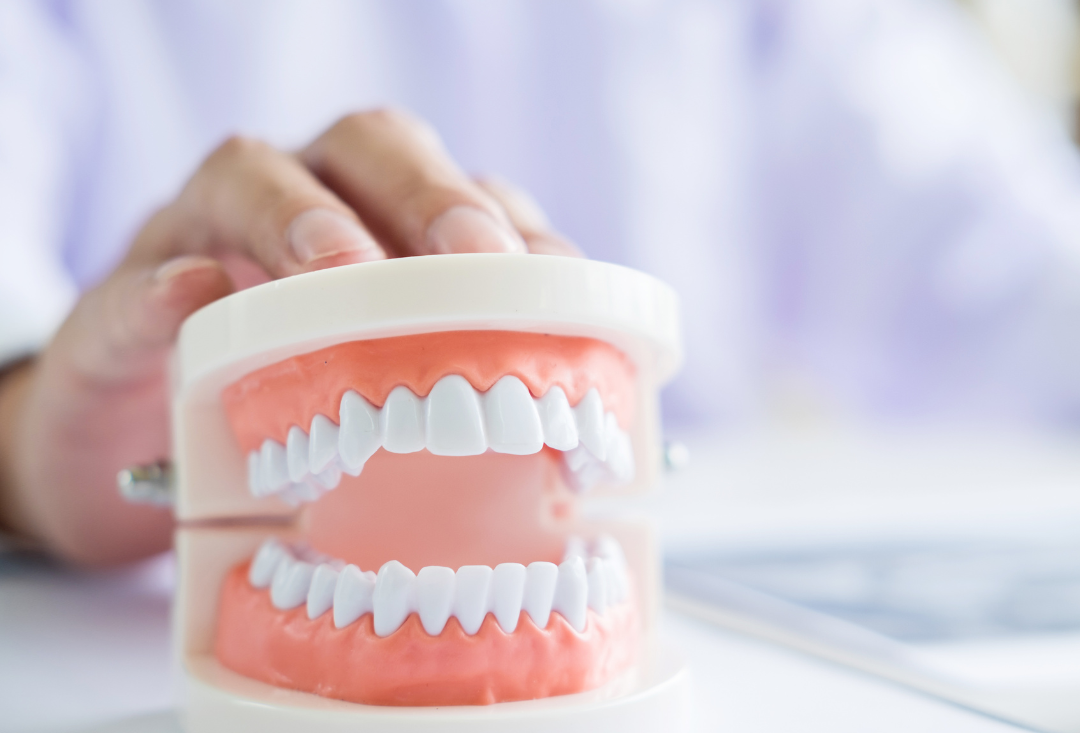Dentures
Replace multiple missing teeth with custom-made dentures, crafted to fit comfortably and provide support to the lips and face.

What are Dentures?
Dentures are artificial teeth set on a flesh-coloured base that can be put in the mouth and taken out when necessary. They can also be held in the mouth securely when combined with dental implants. They are a non-invasive solution to multiple lost teeth and bring support to your lips and face with dentures.
Types of Dentures

Partial
Used when you have some natural teeth remaining. They are designed to fill in the gaps and prevent your remaining teeth from shifting.

Full
Typically used when all of your teeth are missing. They can be either conventional or immediate. Conventional dentures are made after 1 your gums have healed from extractions, while immediate dentures are placed immediately after teeth removal.
Well-maintained dentures can last for decades. However, as our gums change their shape over time, we would recommend replacing your dentures every 3-5 years.
What to expect
Our dentist will first take measurements and dental impressions of your mouth to create a customised bite. This will be followed by a dentures’ fitting to ensure that the use of dentures is comfortable. Once the new dentures are created at the lab, they will be ready for collection. This process occurs after a few visits.
You might take a few days to get used to chewing and eating with your new dentures. Don’t worry, this process is perfectly normal.

FAQ
Avoid sticky, hot and food with sharp edges until you are used to sensing temperature and textures with dentures in your mouth. Have some soft foods instead, such as chicken porridge or steamed buns. As you gain confidence with every bite using your dentures, you can begin to enjoy different foods again.
You can resume your daily activities immediately. Follow the instructions regarding the insertion and removal of your denture. Do not use too much force in removing your denture. Learning to eat with denture takes practice and time. You may have to cut foods into smaller pieces and chew slowly. Although denture can improve chewing function as opposed to having no teeth, it is not possible to achieve the same efficiency as natural teeth. Until you get used to sensing the temperature of hot food, avoid sticky, sharp food. As you gain confidence and ability in using your denture, you can experiment with foods of different textures.
Dentures are non-invasive and in most cases, should not be painful. At the beginning of getting new dentures, you may feel tightness or soreness in your gums. Your dentures may feel bulky and your mouth may feel “crowded”.
Do not worry as these are common symptoms and will usually improve over time.
In the event you require some adjustments to your dentures, give your attending dentist a call.
Take care of your dentures and oral health with the following practices:
Brush your gums, tongue, and palate every morning with a soft-bristled brush before you insert your dentures to stimulate circulation in your tissues and remove plaque.
Give your gums a break by removing your dentures before going to bed.
Treat your dentures to a long soak in a glass of water. Dry dentures can become brittle and crack. Avoid placing them in hot water as it can warp your dentures.
Gently rinse your dentures after each meal with warm or cold water. You can also use mouthwash. Use a soft bristle toothbrush with gentle soap or approved dentures cleaner to brush both the inside and outside of the dentures. Avoid using abrasive cleaners or toothpastes and be careful not to drop your dentures as they may crack. Do all your cleaning above a basin of water for extra safety.
In some cases, a fungal infection (candida albicans) can develop in the gums if there is inadequate hygiene or if you regularly keep dentures on through the night.
Do visit us for regular dental checks to ensure that your dentures are at their best.
In general, dentures cannot be whitened because the material used to make the false teeth will not respond to whitening kits, solutions or whitening toothpaste. In fact, whitening chemicals may damage the structure of dentures.
While high quality dentures are less prone to discolouration or stains, you should still aim to prevent stains from forming by cleaning your dentures regularly. They can also be brought to the dentist for professional removal of plaque and calculus.
Book your appointment
Our simple to use, online appointment process makes it easy for you to book for any one of our services and doctors.

Please enter the information below to request an appointment with us.
The requested appointment slot is subject to availability and our staff will contact you within 5 working days.
To book an urgent/emergency appointment, please call us at 6336 6222. All fields marked with an ( * ) are mandatory.
